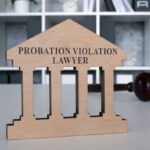Recent Blog Posts

Defending Against DUI Charges in California
A conviction for driving under the influence (DUI) can have severe consequences in California, including fines, license suspension, and even imprisonment. However, with the right defense strategy, it’s possible to challenge DUI charges, protect your rights, and get the best outcome given the circumstances. At the Law Office of Paul Tyler, an experienced Oxnard… Read More »

The Impact of a DUI Conviction in California
Driving under the influence (DUI) is a serious offense in California with severe legal, personal, and professional consequences. If you are convicted of a DUI in California, you could face significant penalties that can affect various aspects of your life. As with any criminal charge, the burden falls on the prosecution to prove its… Read More »

California’s DUI Penalties: First Offense vs. Multiple Offenses
A conviction for Driving Under the Influence (DUI), even a first offense, comes with significant negative consequences; it is costly, inconvenient and embarrassing. It could jeopardize your employment or even land you in jail. That’s just for a first offense, and the penalties increase significantly with any subsequent conviction. The fact that penalties increase… Read More »

Understanding California’s DUI Laws
Driving under the influence (DUI) laws in California are complex and carry significant consequences for those charged. In this comprehensive guide, we’ll explore the legal limits that define driving under the influence, different types of DUI charges, and the statutory provisions that govern DUI in California. If you or a family member has been… Read More »

Understanding California’s Zero Tolerance Law for Young Drivers
When it comes to underage drinking and driving, California has a zero-tolerance law in place. What does “zero tolerance” mean, and what are the legal implications for a youthful driver arrested under this law? Read on for a brief discussion of these matters, highlighting the most important aspects of the law and its ramifications…. Read More »

The Impact of Oral Swab Testing on DUI Arrests in California
In the realm of DUI enforcement in California, technological advancements have introduced a new method: oral swab testing. This innovation is transforming how law enforcement agencies detect and prosecute DUI cases involving drugs, otherwise known as Driving Under the Influence of Drugs or DUID. See below for a brief guide regarding oral swab testing… Read More »

Understanding Probation Violations in California: What You Need to Know
Probation is often viewed as a lenient alternative to incarceration, allowing individuals convicted of a crime to serve their sentences within the community under specific conditions. However, violating these conditions can lead to severe consequences. Consulting with The Law Office of Paul Tyler in Oxnard can help you understand what constitutes a probation violation… Read More »

Navigating California’s Youth Offender Parole Law
If you are a young adult or have a child facing criminal charges in California, understanding the state’s Youth Offender Parole Law is crucial to getting the best result. Unfortunately, this law, aimed at providing youth offenders with a chance at parole, can be a complex maze to navigate. The law is still fairly… Read More »

The Pros and Cons of Deferred Judgment in California
The complex world of criminal law can be daunting, particularly if you find yourself navigating it for the first time. One term that often raises questions is “deferred judgment.” What does it mean? Is it good or bad? A “deferred judgment” might be an option when you are charged with a criminal offense in… Read More »

Understanding and Defending Against a “Wobbler” Charge in California
At the Law Office of Paul Tyler, we are committed to safeguarding the rights of our clients and helping them navigate the complex legal terrain of the criminal justice system. One particularly important fact about California law is that some offenses can be charged as either misdemeanors or felonies depending on the circumstances. These… Read More »



